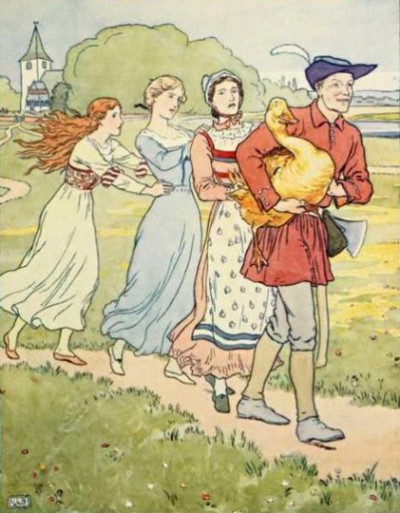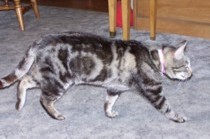Christmas Cookies: Madonna Style
 Mamacita says: During the ordinary course of the year, the cookie cutters live in this wonderful cookie jar given to me by my brother the Christmas before my wedding. He was in high school, but Dr. Steven Byers always did have a knack for choosing a great gift. (I still have the totem pole earring holder he chose for me when he was just a little kid in grade school, and the statue of Pluto – the dog, not the blackballed ex former planet – he gave me when he was about seven.)
Mamacita says: During the ordinary course of the year, the cookie cutters live in this wonderful cookie jar given to me by my brother the Christmas before my wedding. He was in high school, but Dr. Steven Byers always did have a knack for choosing a great gift. (I still have the totem pole earring holder he chose for me when he was just a little kid in grade school, and the statue of Pluto – the dog, not the blackballed ex former planet – he gave me when he was about seven.)
But I digress.
At this time of year, the cookie cutters come out of their jar and are put to use. I am by nobody’s definition or interpretation an artist, so usually I just cut them out and sprinkle colored sugar on them. All attempts by me to paint a candle- shaped cookie always turn out vaguely pornographic, and I fully understand my friends’ reluctance to give one to a small child. The potential for a viral internet picture painting all involved adults in a bad light is too intense.
shaped cookie always turn out vaguely pornographic, and I fully understand my friends’ reluctance to give one to a small child. The potential for a viral internet picture painting all involved adults in a bad light is too intense.
Tonight I’m baking cookies as though the salvation of the world depended on it. They will not be beautiful, but they will be delicious. I’ve, um, “sampled” all the dough (my favorite part of the cookie….) and I speak truth.
In my mind, the holiday cookie cutters are in the same genre as the holiday ornaments: brought out once a year and therefore, in a way, brand new every  time. In Madonna’s words: “like a virgin.” Well, sort of. I suppose we could assume that anything, unused for a full year, would be almost like being touched for the very first time.
time. In Madonna’s words: “like a virgin.” Well, sort of. I suppose we could assume that anything, unused for a full year, would be almost like being touched for the very first time.
Again, I digress. But it was an interesting tangent, and my mind is still working on it.
I could say the same thing about this new batch of final exams, I guess, but somehow the exams don’t involve as much. . . . something. . . . as almost virginal cookie cutters.
Which would be a good name for a garage band: The Almost Virginal Cookie Cutters and their new album: The Cutting Edge of Christmas.
Ahem.
Come on over. We have cookies and hot chocolate. And some leftover cheap whiskey which I probably should have added to the icing, but I didn’t and now the bottle is on the kitchen counter, which no doubt leads visitors to believe I keep it out there because it’s a handy access.
Believe what you want.
The Maladroit
 Mamacita says: I’ve been reminded of this classic fairy tale several times this week.
Mamacita says: I’ve been reminded of this classic fairy tale several times this week.
It started when I got out the Christmas things and found a few broken ornaments. The breaks were simple, so I got out the little tube of superglue, apparently forgetting last year’s fiasco and assuming I would be able to put a drop of the glue on the broken places, fit them together, and have them immediately meld together like raindrops into the sea and just as quickly.
I couldn’t be that lucky.
As I held the glued-together pieces, the glue dripped onto my fingers, and that was the only place it dried instantly. (I threw the pieces of broken ornament away; nothing was going to stick those heads and feet back on. . . .)
The first thing that crossed my mind was “lotus blossoms.” Bound feet. Parts of the human body encased so tightly that all growth was impossible. My mind’s eye watched my fingernails try desperately to grow and end up crammed painfully back into my fingers.
My Facebook friends gave me advice. “Acetone,” several of them advised. That’s fingernail polish remover to some of you folks.
So I went into the bathroom and poured acetone all over my hands.
Oops. I’d forgotten that my hands are currently cut to pieces due to constant dishwashing-by-hand (dishwasher is going to hell, I hope) and exposure to sun whilst taking a prescription drug that expressly forbade the sun. So, ouch.
Feeling like a fool, I went back to the kitchen and did a little more towards the Thanksgiving reunion. Then I remembered. I wanted to cover that grey before my sisters saw me at the Thanksgiving reunion.
So I returned to the bathroom and put color on my hair. With my ungloved hands,  because I’m clumsy enough without gloves and gloves, even latex, turn my hands into nonfunctioning mannequin hands. So, ouch again.
because I’m clumsy enough without gloves and gloves, even latex, turn my hands into nonfunctioning mannequin hands. So, ouch again.
Acetone and Miss Clairol in the same afternoon. On hands that looked like they’d been through the disposal.
Good thing I’d already kneaded the bread, huh.
Wow, lesson learned. I felt so much wiser. It didn’t last.
An hour ago I did the same superglue thing again. I suppose the only thing saving me from the hair dye is the empty box in the wastebasket. Also? I’m an idiot sometimes.
Hey, is that a golden goose in that guy’s arms? Wait up.
Still More Things I Haven’t Done Yet
 Mamacita says: There are so many things I haven’t done yet; it’s sadly easy to find ten things when I do these posts.
Mamacita says: There are so many things I haven’t done yet; it’s sadly easy to find ten things when I do these posts.
1. I have never tasted Ovaltine.
2. I have never seen a single episode of Sponge Bob.
3. I still haven’t ever used an ATM machine. (I understand you have to put money in if you want to take money out. Always a catch.)
4. I have never watched Duck Dynasty. 
5. I’ve never had a manicure or a pedicure.
6. I have never used a dictionary of any kind, nor any other sort of cheat sheet, whilst playing Words with Friends.
7. I have never gotten enough sleep. During the day,  I sometimes daydream about sleeping. I’ve been known to cry when the alarm goes off in the morning. I don’t nap.
I sometimes daydream about sleeping. I’ve been known to cry when the alarm goes off in the morning. I don’t nap.
8. I’ve never been on a cruise or any other kind of expensive, luxurious vacation.
9. I’ve never charged a client for my services if a “due date” falls on a holiday. I won’t skip the day and do it later, and I consider it a gift from me to them.
10. I have never enjoyed watching sports of any kind. If someone I know personally is playing, I can manage some of it; otherwise, I’d rather not at all.
Whenever I do a post like this I feel as if I must be the most boring person in the world.






